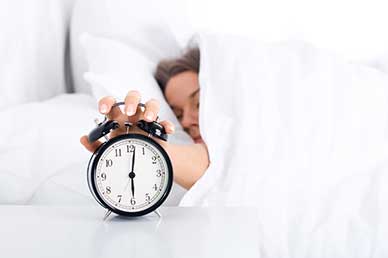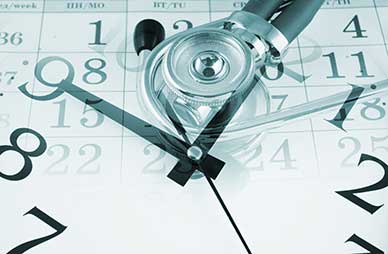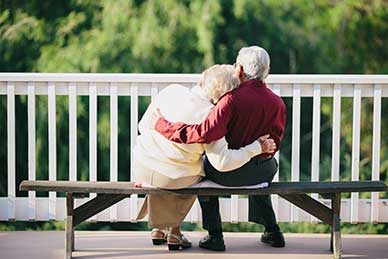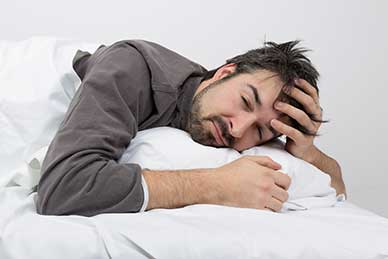Modern life requires travel. Americans and Western Europeans have become more mobile than ever, which means that seeing family and building a career often means some type of travel is involved. As a result, jet lag is not just a problem for executives anymore. Millions of people find their circadian rhythm is disrupted by the busy schedule of modern life. Luckily, there are safe, natural ways to get your internal clocks back on track.
What Is Jet Lag?
Jet lag, or desynchronosis, is a state in which your inner clocks are not aligned with the external time. People can get jet lag from traveling across time zones. There is also a phenomenon called social jet lag, in which people have to be awake for work or other obligations during hours that don’t sync with their circadian rhythm.
Regardless of the reason for jet lag, it can have devastating effects on health. People with jet lag feel fatigued, yet often have trouble sleeping. They can feel mentally fuzzy and suffer from lower cognition and memory. Jet lag also puts people at higher risk of suffering from adverse health events such as infections. Despite the huge number of physical and psychological effects of jet lag, modern medicine offers very few solutions to this common problem.
Factors That Can Make Jet Lag Better… Or Worse
 You may have noticed that you do not get jet lag every time you step on or off a plane. This is because there are a variety of factors that can make jet lag better or worse. For instance, researchers have found that traveling east causes worse jet lag symptoms than traveling west. It ends up that our natural internal rhythms are actually set for slightly longer than 24 hours, so it is easier to add time to our day by moving to an earlier time zone than to subtract hours in the day. Staying hydrated and eating healthy also can keep jet lag from being as severe. The healthier your body is, the more likely it will be to adjust to challenges such as travel quickly and seamlessly.
You may have noticed that you do not get jet lag every time you step on or off a plane. This is because there are a variety of factors that can make jet lag better or worse. For instance, researchers have found that traveling east causes worse jet lag symptoms than traveling west. It ends up that our natural internal rhythms are actually set for slightly longer than 24 hours, so it is easier to add time to our day by moving to an earlier time zone than to subtract hours in the day. Staying hydrated and eating healthy also can keep jet lag from being as severe. The healthier your body is, the more likely it will be to adjust to challenges such as travel quickly and seamlessly.
Even if you are traveling east, there are several ways that you can mitigate the effects of jet lag. Drinking lots of water helps, as travel is dehydrating and this can make jet lag symptoms worse. Avoiding caffeine, alcohol and other substances also help your body to get back on track more quickly. Ensure that you eat a wide variety of healthy foods to get the vitamins your body needs and that you get plenty of exercise. Last, do things that help your body to adjust to your new time zone. Make sure you get plenty of light exposure during the day and eat at set times.
Melatonin for Jet Lag: A Safe, Natural Treatment
Research on melatonin for jet lag has found that this supplement can make a huge difference in helping people to get both the quality and the quantity of sleep they need. Melatonin is naturally produced by your body in preparation for sleep. If you are planning to travel, scientists recommend trying to slowly adjust to the new time zone before you leave by either going to bed progressively later or taking melatonin so you can go to bed earlier. Our bodies take approximately one day per time zone to adjust, but this process can be done before travel to make the transition easier.
There are also other safe, natural remedies besides melatonin for jet lag. Stanford researchers have developed a mask that can be controlled by your smartphone intended to help treat jet lag. It uses light to help your body adjust to changes in time zone. There is also a Stop Jet Lag app that can guide you in preparing for and undergoing a large trip without being devastated by fatigue and other symptoms. The Anti-Jet Lag Calculator is a similar app that helps you to align your circadian rhythm with a new time zone by carefully planning when you eat meals and perform other daily tasks.
Unfortunately, jet lag is a fact of modern life. However, you do not have to live with the fatigue, clouded thinking, insomnia and other effects of this disorder. There are many different ways of helping your body to adjust to a new time zone with as few physical effects as possible. Taking charge of your circadian rhythm is taking charge of your health.
 While it is difficult to change one’s innate sleep-wake cycle, the good news is that Advanced Sleep Phase Disorder can be treated. Most doctors recommend a combination of behavioral changes and other therapies. People should go to bed at the same time every night and awake at the same time in the morning, even on weekends or days off. This keeps the body from slipping into a less adaptive rhythm. Because it is almost impossible to change your sleep schedule in one sweeping shift, most experts recommend aiming to
While it is difficult to change one’s innate sleep-wake cycle, the good news is that Advanced Sleep Phase Disorder can be treated. Most doctors recommend a combination of behavioral changes and other therapies. People should go to bed at the same time every night and awake at the same time in the morning, even on weekends or days off. This keeps the body from slipping into a less adaptive rhythm. Because it is almost impossible to change your sleep schedule in one sweeping shift, most experts recommend aiming to  The link between cancer and the circadian clock is especially clear when you examine the relationship between sleep and cancer outcomes. Regardless of the type of cancer, having sleep apnea (and possibly other disorders that interfere with sleep) is
The link between cancer and the circadian clock is especially clear when you examine the relationship between sleep and cancer outcomes. Regardless of the type of cancer, having sleep apnea (and possibly other disorders that interfere with sleep) is  Although seasonal affective disorder is common, it is not something people need to tolerate without treatment. There are many ways to beat the winter blues. Stock up on vitamin D supplements so you don’t lack this critical nutrient. Make an effort to
Although seasonal affective disorder is common, it is not something people need to tolerate without treatment. There are many ways to beat the winter blues. Stock up on vitamin D supplements so you don’t lack this critical nutrient. Make an effort to  In adulthood, the ideal work schedule mainly depends on your unique circadian rhythm, which research has found is primarily
In adulthood, the ideal work schedule mainly depends on your unique circadian rhythm, which research has found is primarily  We do not currently know the ideal work schedule for people over the age of 65 because working past this age is a relatively new phenomenon. Humans were once lucky to live to this age, but now around
We do not currently know the ideal work schedule for people over the age of 65 because working past this age is a relatively new phenomenon. Humans were once lucky to live to this age, but now around  The role of your gut flora in maintaining a healthy circadian rhythm and sleep is one of the most surprising connections to have sprung from modern chronobiology studies We already knew that these bacteria are important players in health, synthesizing nutrients and helping to break food particles in our diets. However, new research is finding that your mental health, autoimmune activity, and, yes, even sleep may depend in part on having a health gastrointestinal tract.
The role of your gut flora in maintaining a healthy circadian rhythm and sleep is one of the most surprising connections to have sprung from modern chronobiology studies We already knew that these bacteria are important players in health, synthesizing nutrients and helping to break food particles in our diets. However, new research is finding that your mental health, autoimmune activity, and, yes, even sleep may depend in part on having a health gastrointestinal tract.